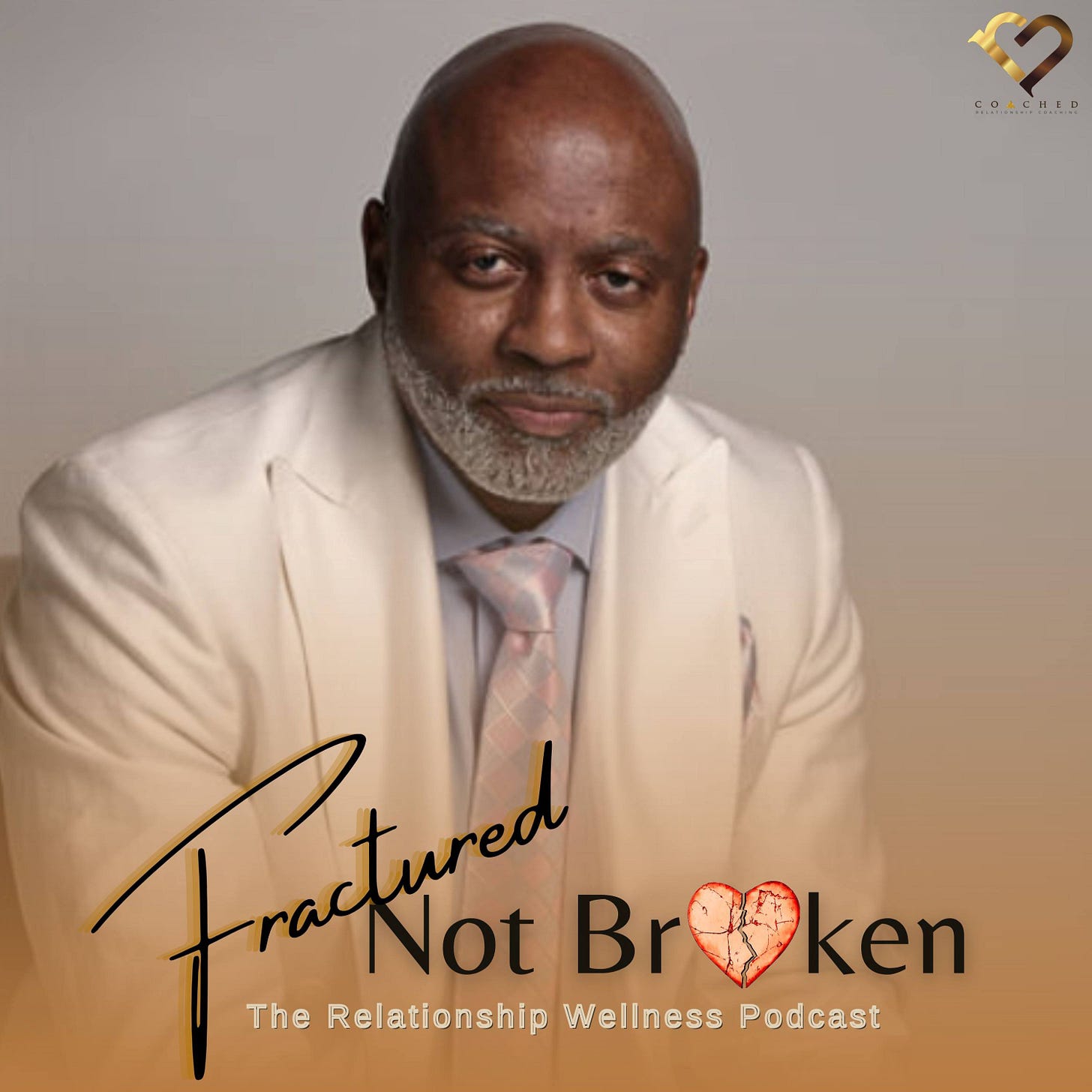How Am I Showing Up?
Welcome to episode twenty-five of Fractured, Not Broken: The Relationship Wellness Podcast.
I believe that our time together during this episode will be illuminating, enlightening, and inspiring. You may remember that the goal of this podcast is to transform how we present and show up in our relationships, whether they are personal or professional.
This episode is a little different from most because it is designed for the working professional. I want to share insights into a term called imposter syndrome. This happens when people struggle with insecurities, no matter how successful they become. People just starting out in their careers can be impacted, as well as people who are veterans in their careers.
The term was made popular by Drs. Pauline Rose Clance and Suzanne Imes, who studied high-achieving women in the 1970’s. Very simply stated, imposter syndrome leaves people feeling like they are not good enough. In this moment, people may ignore all their past successes and falsely assume that their accomplishments do not count because they feel lacking in some ways.
When professionals feel like they are underperforming, they may also feel insecure, less strong, and less confident. Unfortunately, that’s how they begin to show up at work. It happens at every stage, from new employees to long-time professionals, who start to reveal their self-imposed doubts.
The EQ tenets of self-awareness, self-management, and social awareness can be called upon in these circumstances. The key is to realize what is happening through self-and social-awareness, and to self-manage the experience.
I recently read an article in Harvard Business Review by Andy Molinsky, which shed light on this topic.
Replace thoughts that may sabotage a professional career track with the realization that one’s overall record is good. This can help professionals to show up with a strong sense of mastery of their skills. Working professionals can remember that their work up to this point has been well-received and will continue to be in the future.
Of course, there will always be new learning curves and opportunities to become better at work, so there is no shame in embracing new learning. Professionals can remember, while they are growing, to lean upon their already-established expertise, which can create fresh, new perspectives on how to show up, absent of questioning oneself. Instead, professionals can remember to ask questions of others on the team to inform new views and ways of thinking, and achieve newfound confidence.
Let me share an example which comes from my own professional life. When I first founded RU Coached and started this work which I love, I would often get this question: “What qualifies you to help others with their relationships?”
This “ask” would initially cause me to question myself and my abilities. Over time, I decided to turn the moment around and make it a teachable moment. I fought off the inner saboteur. I emerged confidently and strong, regarding how I saw myself as a coach.
I learned how to help people to understand the differences between a coach and a therapist. I was not trying to assume that I could take on the role of offering therapy. But some of the people I was meeting were misunderstanding my role in the relationship space.
In those moments, I would clarify that a therapist may help people to understand their pasts and a counselor may work with folks on their present experiences.
As a coach, my role is to help people navigate towards a better future. The people whom I coach may have very satisfying work lives. They simply are seeking assistance to take the next steps in their journeys—successfully. Regarding my own journey, I believe I have mastered the self-management skills to close the door on self-doubt.
In conclusion, I urge working professionals to take stock of all that they have accomplished so far, be open to learning new things, and confidently show up as they write the next chapters in their career stories.
If this content resonates, I would love to set up a discovery call. During that call, we can determine if our goals are aligned, and how I can apply relationship expertise to a situation.
To learn more about me and RU Coached, please visit https://linkt.ree/rucoached
Author’s Note: Special thanks to Sylvia Blair of Blair Copywriting and Communications, LLC, for her assistance in preparing this newsletter post.


